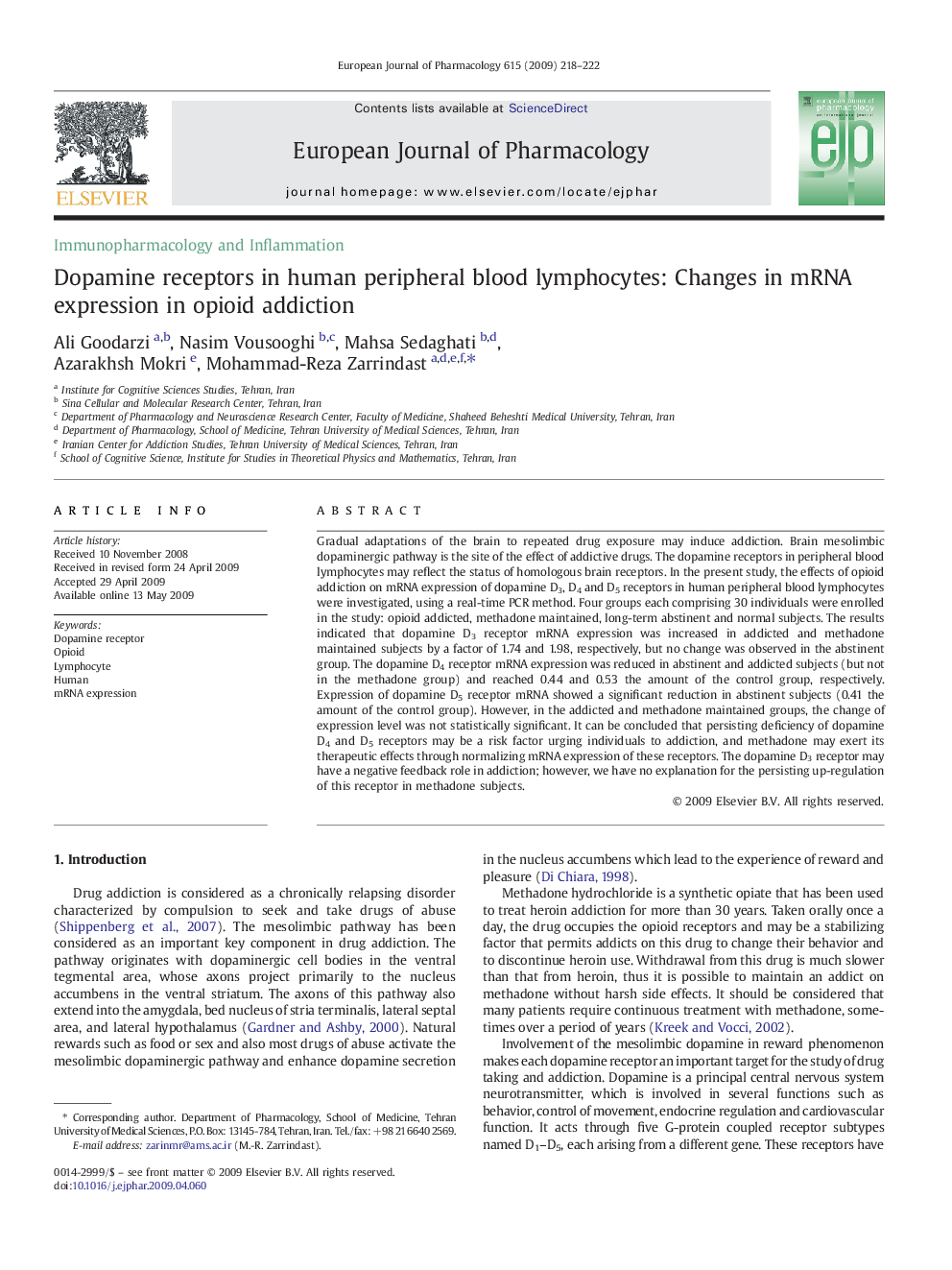| Article ID | Journal | Published Year | Pages | File Type |
|---|---|---|---|---|
| 2534227 | European Journal of Pharmacology | 2009 | 5 Pages |
Gradual adaptations of the brain to repeated drug exposure may induce addiction. Brain mesolimbic dopaminergic pathway is the site of the effect of addictive drugs. The dopamine receptors in peripheral blood lymphocytes may reflect the status of homologous brain receptors. In the present study, the effects of opioid addiction on mRNA expression of dopamine D3, D4 and D5 receptors in human peripheral blood lymphocytes were investigated, using a real-time PCR method. Four groups each comprising 30 individuals were enrolled in the study: opioid addicted, methadone maintained, long-term abstinent and normal subjects. The results indicated that dopamine D3 receptor mRNA expression was increased in addicted and methadone maintained subjects by a factor of 1.74 and 1.98, respectively, but no change was observed in the abstinent group. The dopamine D4 receptor mRNA expression was reduced in abstinent and addicted subjects (but not in the methadone group) and reached 0.44 and 0.53 the amount of the control group, respectively. Expression of dopamine D5 receptor mRNA showed a significant reduction in abstinent subjects (0.41 the amount of the control group). However, in the addicted and methadone maintained groups, the change of expression level was not statistically significant. It can be concluded that persisting deficiency of dopamine D4 and D5 receptors may be a risk factor urging individuals to addiction, and methadone may exert its therapeutic effects through normalizing mRNA expression of these receptors. The dopamine D3 receptor may have a negative feedback role in addiction; however, we have no explanation for the persisting up-regulation of this receptor in methadone subjects.
